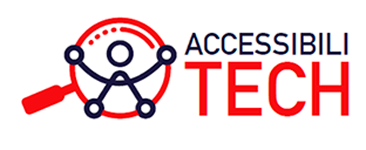Electrical engineering is a dynamic and essential discipline within the academic and professional landscape of Australia. Students pursuing this field encounter intricate theories, practical challenges, and complex assignments that require precision and deep understanding. With increasing academic expectations and industry-aligned coursework, many students turn to Engineering Assignment Help as a valuable support resource for staying on track.
The Academic Landscape of Electrical Engineering in Australia
Electrical engineering programs in Australia are known for their high standards and global relevance. Universities integrate a balance of theoretical learning and practical application, ensuring students are industry-ready by the time they graduate. Courses often include subjects like power systems, digital electronics, control engineering, signal processing, and electromagnetics.
Assignments in these subjects are not merely academic tasks—they reflect real-world engineering challenges. Students are expected to design and simulate circuits, analyze electrical systems, and often engage with renewable energy technology. These requirements push students to understand multiple domains of engineering and apply them simultaneously, which is both enriching and demanding.
Complex Concepts and Challenging Tools
Students often find themselves struggling with the sheer breadth and depth of topics in electrical engineering. For instance, mastering control systems involves understanding Laplace transforms, transfer functions, and system stability—concepts that can be abstract and difficult to visualize. Similarly, courses in digital systems introduce logic gates, flip-flops, and finite state machines, which demand a high level of analytical reasoning.
Compounding the difficulty is the need to use simulation tools such as MATLAB, Simulink, PSpice, and Multisim. These platforms are vital for modeling and testing electrical systems. However, the technical skills required to use these tools effectively aren’t always intuitive. Assignments often require students to write scripts, simulate real-time systems, and troubleshoot errors—skills that take time and practice to master.
Language Barriers and Formatting Challenges
Australia attracts thousands of international students every year. Many of them, though technically proficient, struggle with academic writing, especially in highly technical subjects like electrical engineering. Communicating intricate ideas in clear, concise English can be a hurdle, particularly when assignments demand detailed explanations, formal reports, and accurate referencing.
Another common difficulty lies in interpreting assignment rubrics and meeting university expectations. Different institutions have varying formatting guidelines, citation styles (like IEEE or APA), and structural preferences. Navigating these requirements while focusing on content accuracy can be stressful for students, especially those new to the Australian education system.
Renewable Energy and Modern Curriculum Expectations
In their engineering programs, Australian institutions place a strong emphasis on innovation and sustainability. As the country moves toward renewable energy sources, electrical engineering students are increasingly exposed to assignments on solar power integration, wind energy systems, and smart grid technologies.
These topics extend beyond classical theories and require students to stay updated with current trends and technologies. Assignments may involve evaluating the efficiency of photovoltaic systems, simulating power flow in distributed networks, or analyzing data from real-time energy monitoring devices. The interdisciplinary nature of these assignments means students must blend electrical concepts with environmental awareness and data analytics.
Practical Limitations and Time Constraints
Electrical engineering students often face intense academic pressure. A single assignment might require several days of work, including circuit design, simulation, debugging, and documentation. Coupled with lectures, exams, part-time jobs, and extracurricular responsibilities, students can easily become overwhelmed.
Some students may know but lack the time, while others may struggle with specific concepts and need additional guidance. Collaborative learning, consulting professors, and forming study groups are effective strategies, but they don’t always resolve every difficulty, especially when deadlines are tight or when assignments involve unfamiliar software tools.
The Role of Academic Support Services
This is where targeted support becomes essential. Engineering Assignment Help Australia provides students with a structured way to approach their tasks, offering guidance on problem-solving methods, design techniques, and report writing. It’s not about doing the work for the student, but about empowering them to complete it more effectively and confidently.
Such support may include explanations of core principles, assistance with simulations, code debugging, and sample solutions. For students struggling with format and clarity, help with structuring reports, referencing, and proofreading can make a significant difference in their grades and overall understanding.
Emerging Technologies and Industry Relevance
Electrical engineering is evolving rapidly. Topics like electric vehicles, the Internet of Things (IoT), artificial intelligence, and wireless power transmission are becoming central to modern curricula. Students must be prepared to tackle assignments that reflect these industry shifts.
For example, a task might involve designing a smart lighting system using sensors and microcontrollers, or creating a prototype for an energy-efficient inverter. These projects demand both theoretical knowledge and hands-on experience with tools like Arduino, Raspberry Pi, or real-time monitoring platforms.
Tips for Success in Electrical Engineering Assignments
To thrive in electrical engineering, students should adopt a proactive approach:
-
Start early: Begin assignments ahead of deadlines to allow time for research, revisions, and troubleshooting.
-
Practice regularly: Frequent practice with circuit design and simulation software builds confidence and competence.
-
Ask questions: Seek clarification from lecturers, tutors, or support services when concepts are unclear.
-
Stay updated: Follow engineering journals, blogs, and news to stay informed about innovations and trends.
-
Manage stress: Take regular breaks, maintain a healthy lifestyle, and don’t hesitate to use university counseling or well-being resources.
Conclusion
Electrical engineering assignments in Australian universities are designed to prepare students for the complexities of the real world. They challenge learners to integrate theory with application, stay updated with emerging technologies, and develop critical thinking skills. While the path is demanding, the rewards are significant.
With the right support, time management, and willingness to learn, students can excel in their assignments and build a solid foundation for their careers. Utilizing available resources wisely, maintaining academic integrity, and seeking assistance when necessary can make the academic journey smoother and more rewarding.
FAQs
What topics are covered under Electrical Engineering Assignment Help?
Electrical Engineering Assignment Help covers various topics, including circuit analysis, power systems, digital electronics, control systems, electromagnetics, and renewable energy systems. Whether you need assistance with theoretical concepts or practical applications, expert guidance is available to address your specific academic needs.
Can I get assistance with urgent Electrical Engineering assignments?
Yes, many assignment help services provide urgent assistance for Electrical Engineering assignments. Skilled experts can handle tight deadlines while maintaining accuracy and quality, ensuring you meet submission dates without compromising academic standards.
How can Electrical Engineering Assignment Help improve my academic performance?
Seeking assignment help can significantly enhance your understanding of complex topics, refine your problem-solving skills, and ensure well-structured solutions. This not only boosts your grades but also strengthens your grasp of Electrical Engineering concepts for future assessments.
Can I request customized solutions for complex Electrical Engineering problems?
Yes, customized solutions are available for complex Electrical Engineering problems. You can provide specific guidelines, data, and requirements, and experienced professionals will create a tailored assignment that aligns with your academic needs.

